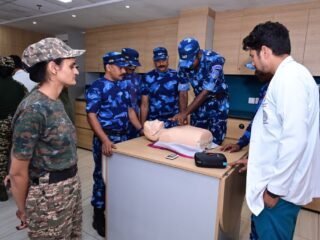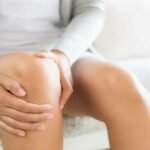With COVID-19 infections picking up around the world, Malaria researcher Nicholas White and his colleagues at the Mahidol Oxford Tropical Medicine Research Unit have designed a trial in which 40,000 doctors and nurses in Asia, Africa, and Europe will prophylactically receive chloroquine or hydroxychloroquine, two old drugs against malaria.
The international study is one of several in preparation or underway that seek to use drugs for what is called pre-exposure prophylaxis (PrEP), a strategy already widely used against HIV.
PrEP studies of the malaria drugs could also be the best way to settle the heated debate over whether they are a promising treatment for COVID-19.
Chloroquine and hydroxychloroquine are good choices to test because they are widely available.
In White’s proposed trial, health care workers in Asia will be randomized to take chloroquine or a placebo for 3 months, while hydroxychloroquine will be used in Africa and Europe. Participants have to take their temperature twice a day and report it, along with any symptoms, through an app or a website. The researchers will compare the number of symptomatic and asymptomatic infections in both groups, as well as the severity and duration of illness in those who become infected.
The Bill & Melinda Gates Foundation is funding plans for another huge study that will test the same two drugs in Africa, North America, and Europe. Separate studies of the same drugs are planned or underway in the United States, Australia, Canada, Spain, and Mexico.
Nitazoxanide, a drug used to treat parasitic infections, is also being considered to be used as a preventive strategy against COVID-19.
Another trial has begun in Spain. People who have tested positive for COVID-19 are being given the HIV combination drug darunavir/cobicistat plus hydroxychloroquine.
Experience with HIV has shown that PrEP and PEP can work to reduce infections. But before large-scale studies in HIV began, scientists had an “amazing amount of data” from a monkey model and epidemiology studies suggesting the strategies would work, says Steven Deeks, an HIV researcher at the University of California, San Francisco (UCSF). “I’m not sure any of that applies to what’s happening now.”
On March 22, the World Health Organization (WHO) announced a large global trial, called SOLIDARITY, to find out whether any can treat infections with the new coronavirus for the dangerous respiratory disease.
Scientists have suggested dozens of existing compounds for testing, but WHO is focusing on what it says are the four most promising therapies: an experimental antiviral compound called remdesivir; the malaria medications chloroquine and hydroxychloroquine; a combination of two HIV drugs, lopinavir and ritonavir; and that same combination plus interferon-beta, an immune system messenger that can help cripple viruses. Some data on their use in COVID-19 patients have already emerged—the HIV combo failed in a small study in China—but WHO believes a large trial with a greater variety of patients is warranted.







